europeancommission
Latest

Google's defense against anti-trust claims: 'we're open'
Google has a response for the European Commission's anti-trust allegations. In a lengthy blog post, the tech juggernaut addressed the EC's concerns point by point. That starts with the EC's stance that Android isn't in competition with Apple's iOS mobile operating system, and Google citing the Commission's own research that 89 percent of survey respondents feel that the two are competitors. That last bit is a recurring theme, with Google pointing toward the survey responses for the EC's stance on Android's "stable and consistent framework" across devices as well. In perhaps the most poignant response, Google made a GIF that illustrates how many apps are typically pre-installed/bundled on Android devices versus the competition -- something the EC directly called out. By Mountain View's count, of the Samsung Galaxy S7 with Android 6.0.1's 38 pre-installed apps, only 11 were from Google. Contrast that with 39 out of 47 on the Lumia 550 from Microsoft and 39 out of 39 from Apple on the iPhone 7 running iOS 10.0.2. "Android hasn't hurt competition, it's expanded it," Google's Senior Vice President and General Counsel Kent Walker said in a statement. "Android is the most flexibe mobile platform out there, balancing the needs of thousands of manufacturers and operators, millions of app developers and more than a billion consumers. "Upsetting this balance would raise prices and hamper innovation, choice and competition. That wouldn't just be a bad outcome for us. It would be a bad outcome for the entire ecosystem, and -- most critically -- for consumers." And with that, the battle moves onward. Maybe the EC's stance won't leak ahead of the next round. Maybe.

Google slams EU's antitrust claims against AdSense and Shopping
Back in April, the European Commission started its Google antitrust inquiry looking into Android development. But a few months later it broadened the probe into investigating whether the search giant abused its control of AdSense and comparison shopping results to push its own products over others. Today, Google firmly rejected the allegations as lacking evidence, stating that the EU's vision of online shopping just doesn't mesh with reality.

Germany calls for a ban on combustion engine cars by 2030
Germany isn't content with relying on financial incentives to usher in an era of pollution-free cars. The country's Bundesrat (federal council) has passed a resolution calling for a ban on new internal combustion engine cars by 2030. From then on, you'd have to buy a zero-emissions vehicle, whether it's electric or running on a hydrogen fuel cell. This isn't legally binding, but the Bundesrat is asking the European Commission to implement the ban across the European Union... and when German regulations tend to shape EU policy, there's a chance that might happen.

Leak shows how EU would punish Google over Android practices
You might not have to wait until the European Union officially launches its Android antitrust case to find out how it plans to punish Google. Reuters says it has obtained a copy of the European Commission's statement of objections (aka a charge sheet), and it looks like regulators wouldn't be playing softball. They'd not only order Google to stop offering payments or discounts in return for pre-installing apps, but issue a fine that could be tied directly to that which Google values most: its search ad revenue.

Europe's free roaming law won't have time limits
The European Union is back with a second shot at a free roaming plan... and while it addresses key complaints, it's raising concerns of its own. The newly proposed rules would ditch the unpopular time limits in favor of letting carriers compare your roaming habits with how you use service at home. Networks could only ask for surcharges (which top out at €0.04 per call minute, €0.01 per text and €0.0085 per megabyte) if it's clear that you're abusing your roaming access. You'd raise a warning flag if you consume way more data than you do at home, for example, or get SIM cards that remain eerily inactive until you start traveling.
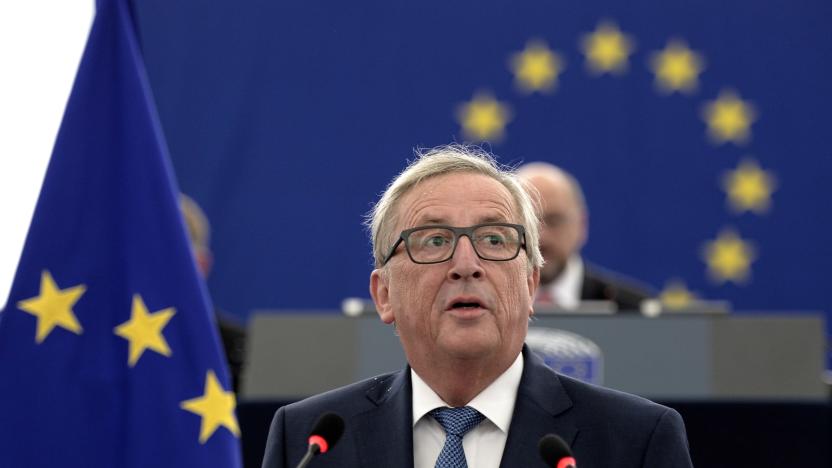
EU digital rules promise 5G, free WiFi and tougher copyright
The European Union isn't done stepping up its digital initiatives. Officials have outlined proposed policies that are focused on dramatically increasing access to both the internet and the content you'll find on it. Most of the proposals will be helpful, although not everyone is a fan -- there are copyright changes that are rubbing Google the wrong way.

Europe's free roaming law comes with an asterisk
In June 2017, the European Commission will get its wish and scrap roaming charges for travellers across the continent. Phone calls, text messages and data downloads abroad will be treated as if they originated at home, but there will be a catch. In new plans set out this week, the Commission will instruct operators to let consumers roam for in Europe up to 30 days at a time, for a total of 90 days per year.
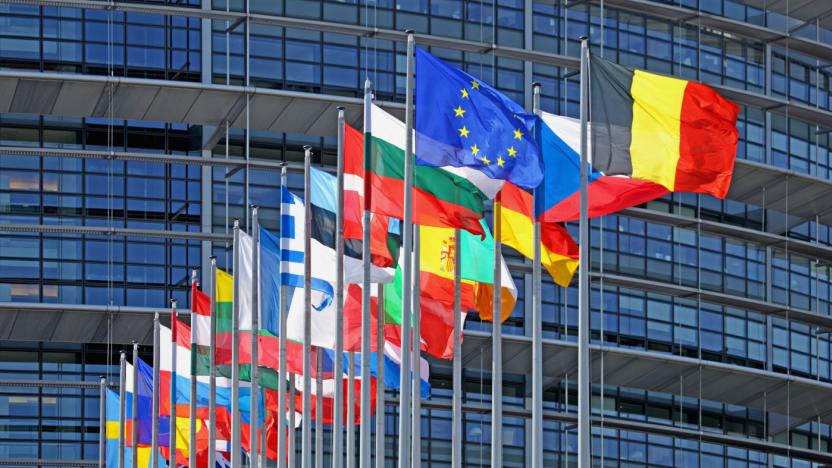
EU will watch Privacy Shield for a year before challenging
Earlier this month, the European Commission adopted Privacy Shield, an EU-US data privacy agreement. It allows companies like Facebook and Twitter to move EU data to US servers, all the while assuring Europeans their data is still as protected as it was back home. Critics have complained the new arrangement has many of the same flaws as the "Safe Harbour" framework it replaces, and EU data protection authorities had yet to comment on the final deal.

The EU-US Privacy Shield is up, but its future is in doubt
After much argument and discussion, the European Commission (EC) today adopted the Privacy Shield, an EU-US agreement that's supposed to protect the rights of Europeans whose personal data is transferred to the US. It's necessary because laws in the US aren't on par with Europe when it comes to data protection. With the agreement in place, companies like Facebook and Twitter can now freely move information between regions while ensuring that Europeans' rights are upheld.

'FriWalk' is a mobility walker and a personal trainer in one
If there is one area of personal transport that is ripe for innovation, it's probably the mobility walker. Typically reserved for older generations -- complete with the stereotypical tennis ball feet (like the one used by Carl Fredricksen in Pixar's Up) -- the walker has remained largely unchanged for decades. As part of the EU's ACANTO project, researchers from six European countries have developed the Friendly Robot Walker or FriWalk, a new four wheeled walker that is fitted with depth sensors and cameras that can detect health risks from a user's gait but also serve as a personal trainer.
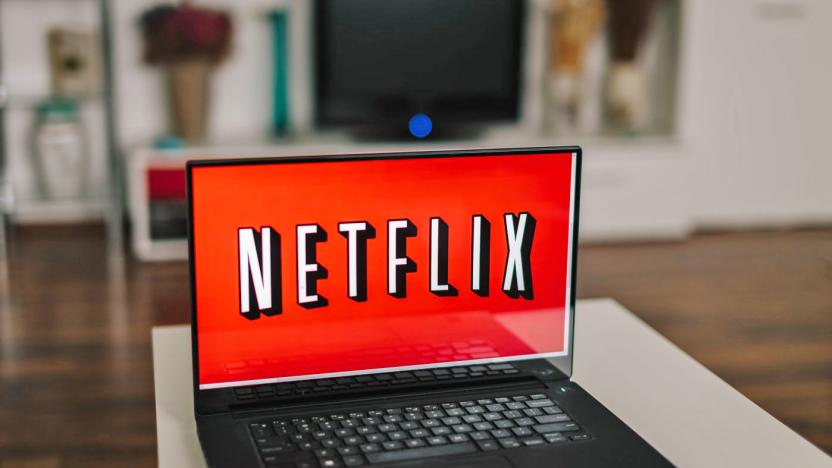
EU wants Netflix to offer 20 percent European content
The European Union is updating its broadcasting laws to cover online services like Amazon and Netflix. As part of the move, the union is looking to prevent these firms just leeching money out of the 28 member states without putting something back. That's why the new rules mandate that 20 percent of each company's content library needs to be European in origin. Rumors of the ruling prompted fears that on-demand businesses would have to pay millions for obscure content that nobody wanted. But it turns out that Netflix is already doing more than the bare minimum to promote European film and TV.

Google reportedly faces a record antitrust fine in Europe
It's growing increasingly likely that Google will face European Union fines for allegedly abusing its dominance of internet search, but just how big will the penalty be? Huge, if you ask the Telegraph's sources. They claim that the European Commission expects to fine Google "in the region of" €3 billion ($3.4 billion) -- that's an all-time high for an EU antitrust payout, and far larger than previous record-setter Intel (which paid the equivalent of $1.4 billion). The massive sum would reflect the length of Google's perceived abuse, and might even "make an example" out of the company for supposedly implementing changes that made it even harder for competitors to get noticed in search results.
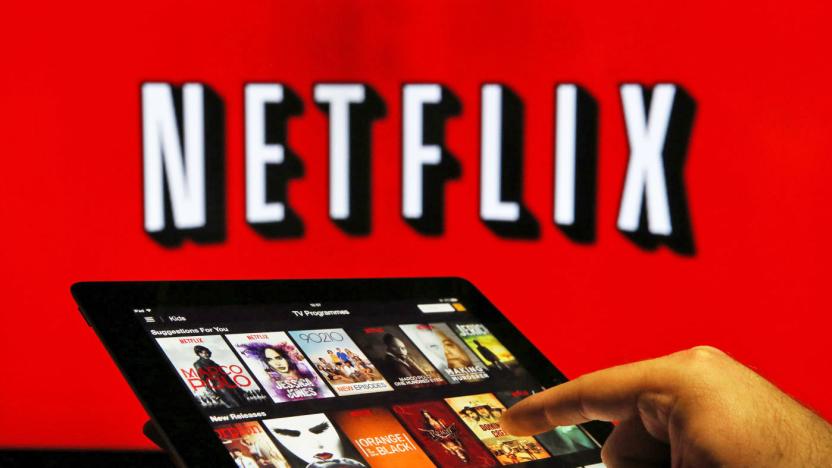
EU agreement lets travelers watch Netflix like they're at home
Most streaming services aren't very useful when you leave your home country. If you don't lose access entirely, you'll probably be forced to look at unfamiliar content and equally unfamiliar languages. However, that shouldn't be a problem in the European Union as of next year. EU member states have tentatively agreed to a proposed law that would require temporary roaming access to subscription streaming services in 2017, complete with the content that you're used to from back home. If you're a British traveler, for instance, you could watch Netflix's UK library while sunning yourself on a Spanish vacation.
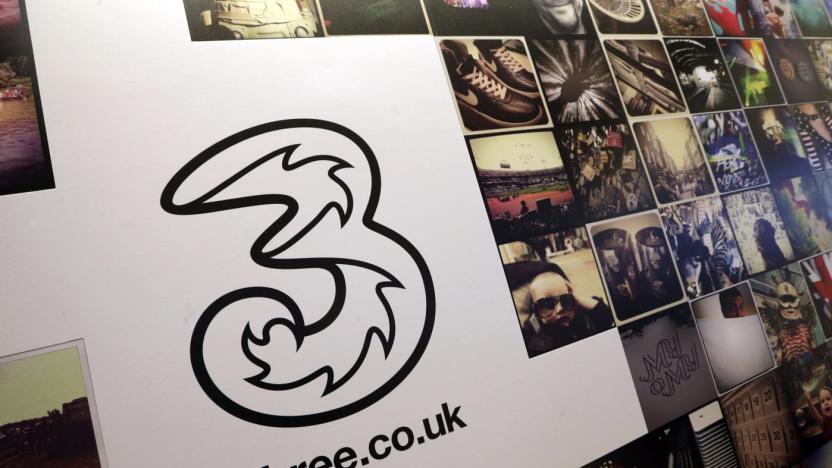
European regulators block Three and O2 merger
We suspected it was coming, but the European Commission has finally come out and said it: Three UK owner Hutchison Whampoa cannot buy UK carrier O2. In a statement, the Commission said that a potential merger between Three and O2 would have "reduced competition" and "resulted in higher prices," which may have negatively impacted the quality of service for UK consumers.

Roaming within the EU has just become cheaper
European decision-makers have been forcibly capping mobile roaming charges in the region for several years now. The last mandated reduction came into effect in July 2014, but today the European Commission has made calls, texts and megabytes that much cheaper once again. The maximum a carrier can now charge you for answering a voice call when you're roaming in another EU country is €0.0114 per minute. Similarly, €0.05 per minute for an outgoing call, €0.02 per SMS and €0.05 per megabyte are the maximum charges you can expect on top of what you'd pay at home.
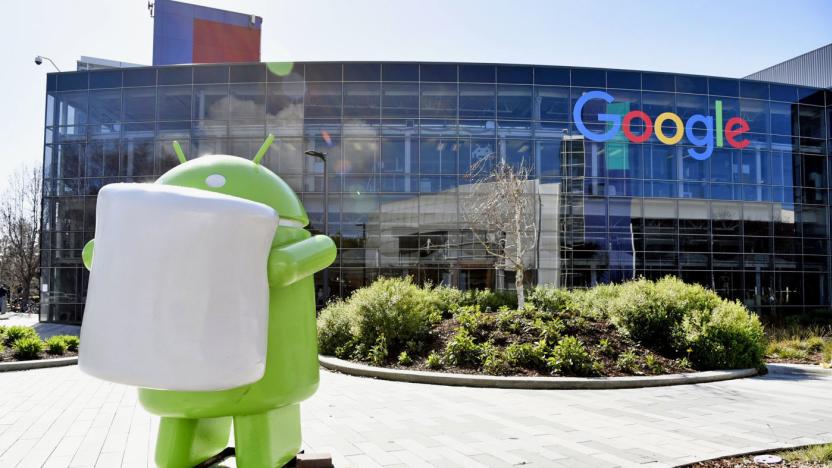
EU close to slapping Google with antitrust charges over Android
The European Union's probe into a possible antitrust case against Google over Android might just lead to full-fledged legal action. Reuters sources claim that the European Commission is getting ready to charge Google for allegedly offering unfair deals to Android phone makers in order to keep its own services on top. While it's not clear just when those charges might drop, the EU is already indicating its main point of contention. It's not so much concerned about Google's demands for app bundles (if you want one Google service, you have to include a bunch more) as it is the exclusive contracts that Google supposedly makes with phone brands to get those bundles in place. These hurt companies' ability to choose which apps they want to load, according to regulators.

UK competition watchdog slams Three and O2 merger
The UK's competition watchdog has called on the European Commission to block a proposed acquisition of Telefonica UK, which runs O2, by Hutchison Whampoa, the company behind Three UK, unless both companies agree to a series of strong concessions. In a letter, Alex Chisholm, CEO for the Competition and Markets Authority (CMA), says he will only approve if Hutchison Whampoa agrees to sell Three or O2 after the acquisition. Such a move is the only way, he argues, to retain adequate competition in the UK mobile industry. If this isn't possible, Chisholm suggests breaking off one of the networks and facilitating smaller sell-offs. "Absent such structural remedies, the only option available to the Commission is prohibition."

Three vows to fix prices to ensure O2 merger is approved
The proposed merger of UK carriers Three and O2 is far from a done deal. The European Commission, which is conducting the official review, telecoms regulator Ofcom and the UK's Competition and Markets Authority (CMA) have all voiced similar concerns: the union will have a significant and likely negative impact on competition in the mobile space. With the merger under threat, Chairman of Three UK Canning Fok has now made a number of promises to grease the wheels, including a five-year freeze on the price of minutes, texts and megabytes across both networks if the deal is approved.

Europe accuses Qualcomm of paying companies to use its chips
The European Commission has sent a sternly-worded letter to Qualcomm, accusing it of abusing its position in the local market. Regulators claim that the chipmaker made "illegal payments," to an as-yet unnamed smartphone manufacturer so that it would only use Qualcomm's 3-and-4G hardware. In addition, the outfit stands accused of intentionally selling gear well below its cost price in order to put a local rival, Icera, which is now owned by NVIDIA, out of business. Those two offenses are, if proven to be true, enough for Qualcomm to be given a hefty slap by Europe.

Spotify really does reduce music piracy, but at a cost
Spotify swears up and down that its free music streaming helps curb piracy. But does it really? Yes, if you ask the EU... but it's not the cure-all that the company might suggest. A European Commission study claims that there's "clear evidence" of Spotify reducing illegal downloads, with every 47 streams leading to one fewer bootlegged track. However, that's offset by the lost revenue from people who might otherwise buy songs outright -- there's one lost song sale for every 137 streams. The service is ultimately "revenue-neutral" for the music business, according to the study.







